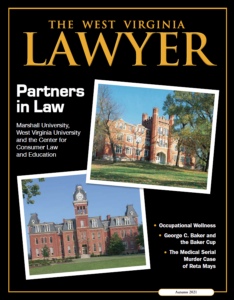[Adopted March 28, 1947, effective May 1, 1947. Amended June 27, 1961, effective
July 1, 1961. Amended December 30, 2019, effective January 1, 2020.]
It is essential to the administration of justice and the proper protection of society that
only qualified persons duly admitted be licensed and permitted to engage in the practice of
law. It is harmful to the public interest to permit anyone to represent falsely that they are
qualified to perform legal services.
Unlicensed persons are excluded from the practice of law to protect the public from
being advised and represented in legal matters by unqualified and undisciplined persons over
whom the courts could exercise little, if any, control.
The principles underlying a definition of the practice of law have been developed
through the years in social needs and have received recognition by the courts. It has been
found necessary to protect the relation of attorney and client against abuses. Therefore it is
from the relation of attorney and client that any definition of the practice of law must be
derived.
The relation of attorney and client is direct and personal, and a person who undertakes
the duties and responsibilities of an attorney-at-law is nonetheless practicing law though such
person may employ or select others to whom may be committed the actual performance of
such duties.
The gravity of the consequences to society resulting from abuses of this relation
demands that those assuming to advise or to represent others in matters connected with the
law shall be properly trained and educated, and be subject to a peculiar discipline. That fact,
and the protection of society in its affairs and in the ordered proceedings of its tribunals, have
developed the principles which serve to define the practice of law.
In general, one is deemed to be practicing law whenever they furnish to another
advice or service under circumstances which imply the possession and use of legal
knowledge and skill.
More specifically but without purporting to formulate a precise and completely
comprehensive definition of the practice of law or to prescribe limits to the scope of that
activity, one is deemed to be practicing law whenever (1) one undertakes, with or without
compensation and whether or not in connection with another activity, to advise another in
any matter involving the application of legal principles to facts, purposes or desires; (2) one
undertakes, with or without compensation and whether or not in connection with another
activity, to prepare for another legal instruments of any character; or (3) one undertakes, with
or without compensation and whether or not in connection with another activity, to represent
the interest of another before any judicial tribunal or officer, or to represent the interest of
another before any executive or administrative tribunal, agency or officer otherwise than in
the presentation of facts, figures or factual conclusions as distinguished from legal
conclusions in respect to such facts and figures. Nothing in this paragraph shall be deemed to
prohibit a lay person from appearing as agent before a magistrate or to prohibit a bona fide
full-time lay employee from performing legal services for his regular employer (other than in
connection with representation of his employer before any judicial, executive or
administrative tribunal, agency or officer) in matters relating solely to the internal affairs of
such employer, as distinguished from such services rendered to or for others.

